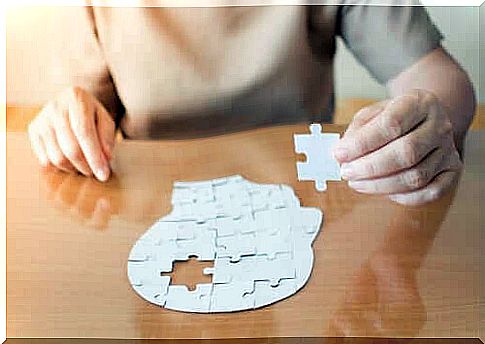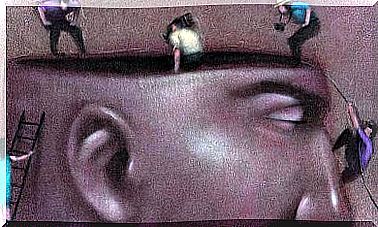Mini-mental Status: The Test For Dementia

Greater longevity has led to a significant increase in diseases such as Alzheimer’s and other forms of dementia. It is important to have quick and easy assessment tools. The Mini-Mental Status Examination is one of the most used tests.
An early diagnosis of dementia, not only by specialists but also by general practitioners, is essential to establish guidelines and therapies that can improve the course of the disease. This, especially taking into account the fact that about 70% of cases are not identified with certainty.

The Mini-Mental Status Examination
The Mini-Mental Status Examination (MMSE) evaluates cognitive changes in suspected cases of dementia. It is a screening tool, which means that, after an initial assessment, it must always be complemented by more in-depth examinations. Based on the score obtained, the patient can be established as having normal cognitive functioning, mild, moderate or severe dementia.
Mild age-related cognitive impairment, a benign and common condition in older people, should be taken into account. The main difference with dementia lies in the fact that only memory is involved in physiological aging; dementia, on the other hand, affects multiple functions and compromises the patient’s self-sufficiency.
The Mini-Mental evaluates, through a series of questions, the cognitive areas that could be altered. Before starting the test it must be explained to the patient that he will be given questions and that he will have to perform some exercises. After making sure that the patient has worn, if necessary, glasses, hearing aid or other tools necessary to overcome sensory deficits, you can begin.
Cognitive areas assessed by the Mini-Mental Status
Orientation
To evaluate the temporal orientation, the following questions are asked: what day of the week are we? In which month? In what year? What day is today? What season are we in?
For spatial orientation : where are we located? What floor? What is the name of the street? In what city? In what state?
Ability to fix information
With this test, the ability to withhold information is measured. It is explained to the subject that he will be offered three words. He will have to repeat them and try to memorize them as he will be asked again later. For example, you are asked to repeat the sequence “money, horse, apple”, assigning a point for each correct answer.
Concentration and calculation
The subject is asked to subtract three numbers from the number 30 at a time. Then, a number sequence is repeated (for example 5-9-2) until it is memorized. Later the patient will be asked to say it backwards.
Memory
It is time to ask the patient to remember the three previously assigned words. A point is awarded for each word remembered, regardless of the order.

Language and manual skills
- After showing the patient a pen and a watch, the patient will have to say the names of the objects.
- Repetition of a sentence, for example “in a wheat field there are five dogs”.
- After the premise “apple and pear are fruits”, one wonders “a dog and a cat, so what are they? What about green and red? “
- It is evaluated if the subject is capable of carrying out the following actions: take a sheet of paper with the right hand, fold it and leave it on the table.
- The patient receives a sheet of paper with a request (for example, to close their eyes). He has to read it and execute the command.
- The subject must write a complete sentence of subject and predicate.
- You show a drawing and ask to copy it to another sheet of paper.
Utility of Mini-Mental Status
The score obtained in each of the tests indicates the presence of any degree of dementia. As we have seen, it is a relatively quick and simple test to administer.
It is ideal as a screening test, but a more thorough evaluation is always required to complete the diagnosis. Despite its simplicity, it is one of the most used tools in cognitive assessment and in the diagnosis of dementias.









